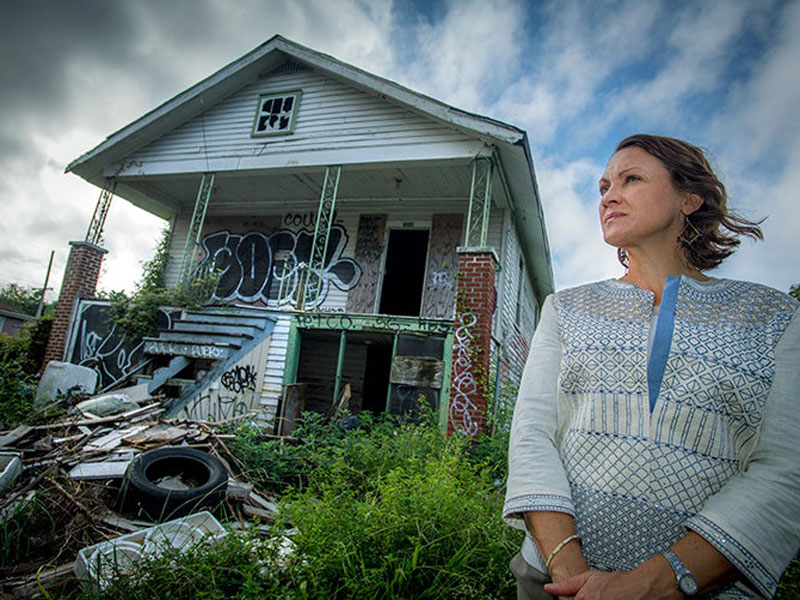Dr. Katherine Theall awarded $2.3 million to test built environment changes

The conditions and characteristics of neighborhoods matter tremendously for the health and well-being individual residents and the community more broadly. Physical and social features of a neighborhood such as environmental hazards, an over-concentration of alcohol establishments, blighted properties, or a lack of social cohesion can undermine residents’ quality of life and signal a potentially harmful living environment.
With a new $2.3 million grant awarded to MAC Director Dr. Katherine Theall, she aims to answer the question: can changes to the neighborhood built environment prevent youth and family violence?
To answer this question, Dr. Theall and her co-Principal Investigator Dr. Charles Branas (Colombia University Mailman School of Public Health), and an interdisciplinary team of co-Investigators from Tulane School of Public Health and Tropical Medicine, Tulane School of Architecture, and Colombia University School of Public Health are partnering with the City of New Orleans and several local community-based neighborhood organizations.
This project is a cluster randomized trial aimed at treating a substantial number of local communities to see if the intervention can reduce perceived stress among residents, improve their sense of community and social control, and prevent youth and family violence defined as both child maltreatment and intimate partner violence. Researchers will also conduct a qualitative and pre- and post-evaluation to examine the personal impact of these neighborhood change strategies. "Improving disorder can do a lot for sense of community and stress reduction. If we can do the same intervention and replicate some of the finding they are seeing in Philadelphia and Detroit, then this could be a model for other cities to use for violence prevention," Dr. Theall explained.
The National Institutes of Health (NIH) award will fund the project for the next five years.
